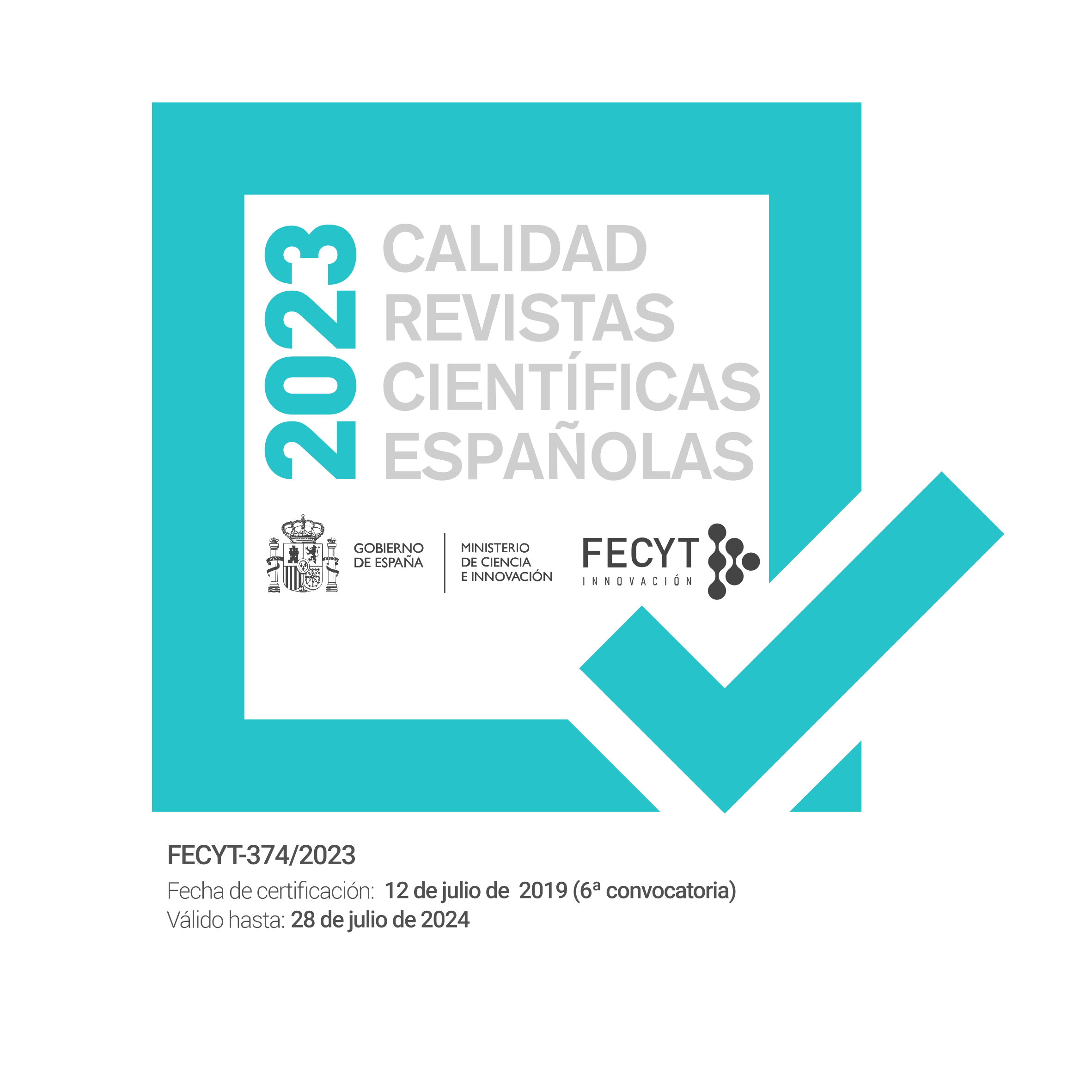Gender and the Role of Emotional Regulation in Intercultural Communication
DOI:
https://doi.org/10.37536/LYM.13.2.2021.1554Keywords:
Emotional regulation, migration,, intercultural adjustment, politeness, GermanyAbstract
This article addresses the question as to why female migrants are more negatively affected than male migrants when confronted with unfamiliar traits in communication in the host country, but they are nevertheless more willing to adapt to the foreign style of communication. To answer this question, the different management of emotional regulation (Thayer et al. 2003) by both genders was investigated. A broad survey conducted among Spanish migrants in Germany led to the conclusion that the female migrants actually perceive the investigated traits more frequently and are also more negatively affected by them. But, in comparison to the males, they have an increased ability to recognize and understand their emotions although they also display an increased tendency to ruminate. However, most of the women counteracted this tendency with a heightened ability to regulate their emotions through antirumination emotional repair strategies. According to the data, this ability
seems to lead to a greater willingness to understand the views of the natives and thus possibly to being more disposed to integrate into the host society.
Downloads
References
Brown, Penelope and Stephen C. Levinson. 1987. Politeness: Some Universals in Language Usage. Cambridge: Cambridge University Press.
Costa, Paul T., Antonio Terracciano and Robert R. McCrae. 2001. “Gender Differences in Personality Traits across Cultures: Robust and Surprising Findings”. Journal of Personality and Social Psychology, 81:2. 322–331.
DW1. Deutsche Welle (ed.). Deutsche bringen die Sache auf den Punkt. https://www.dw.com/de/deutsche-bringen-die-sache-auf-den-punkt/a-47967129, [consulted on 03/06/2020].
DW2. Deutsche Welle (ed.). So vermeidet ihr, in Deuschland angepöbelt zu werden. Retrieved June 3, 2020 from https://www.dw.com/de/so-vermeidet-ihr-indeutschland- angep%C3%B6belt-zu-werden/a-53808136?maca=de-newsletter_de_the_men-2076-xml-newsletter&r=7716852527774001&lid=1522701&pm_ln=34815,
[consulted on 03/06/2020].
DW3. Deutsche Welle (ed.). Was magst du an Deutschland und den Deutschen? https://www.dw.com/de/was-magst-du-an-deutschland-und-den-deutschen/av-49071747, [consulted on 03/06/2020].
Eckes, Thomas. 2008. “Geschlechterstereotype: Von Rollen, Identitäten und Vorurteilen”. In: Handbuch Frauen- und Geschlechterforschung, Ruth Becker and Beate Kortendiek (eds.), 178-189. Wiesbaden: VS Verlag für Sozialwissenschaften.
Feingold, Alan. 1994. “Gender Differences in Personality: A Meta-Analysis”. Psychological Bulletin, 116. 429–456. http://dx.doi.org/10.1037/0033-2909.116.3.429
Feldman Barrett, Lisa, Richard D. Lane, Lee Sechrest and Gary E. Schwartz. 2000. “Sex differences in emotional awareness”. Personality and Social Psychology Bulletin, 26. 1027-1035.
Fernández Berrocal, Pablo and Natalio Extremera Pacheco. 2005. “La Inteligencia Emocional y la educación de las emociones desde el Modelo de Mayer y Salovey”. Revista Interuniversitaria de Formación del Profesorado, 19:3. 63-93.
George, Darren and Paul Mallery. 2003. SPSS for Windows Step by Step: A Simple Guide and Reference, 11.0 Update (4th ed.). Boston: Allyn & Bacon.
Gray, John. 1992. Men are from Mars and women are from Venus: A practical guide for improving communication and getting what you want in your relationship. New York: Harper Collins.
Grossmann, Michele and Wendy Wood. 1993. “Sex differences in intensity of emotional experience: A social role interpretation”, Journal of Personality and Social Psychology. 65:5. 1010-1022.
Hofstede, Geert. 1980. Cultures´s Consequences: International differences in work-related values. Beverly Hills, CA: Sage.
Hofstede, Geert. 1998. Masculinity and Feminity: The taboo dimension of national cultures. Thousand Oaks, CA: Sage.
Hofstede, Geert (ed.). Insights. Country Comparison. https://www.hofstedeinsights. com/country-comparison/germany,the-usa/, [consulted on 23/05/2020].
Hofstede, Geert (ed.). Insights. Dimensions of National Culture. https://hi.hofstedeinsights.com/national-culture, [consulted on 23/05/2020].
House, Juliane. 2005. “Politeness in Germany: Politeness in Germany?”. In: Politeness in Europe. Leo Hickey and Miranda Stewart (eds.), 13-28. Clevedon, England: Multilingual Matters.
Martinez-Pons, M. 1997–1998. “The relation of emotional intelligence with selected areas of personal functioning”, Imagination, Cognition, and Personality, 17. 3–13.
Merchant, Karima. 2012. How Men and Women Differ: Gender Differences in Communication Styles, Influence Tactics, and Leadership Styles. CMC Senior Theses.
Paper 513. Retrieved February 15, 2020 from http://scholarship.claremont.edu/cmc_theses/513
Nolen-Hoeksema, Susan and Amelia Aldao. 2011. “Gender and age differences in emotion regulation strategies and their relationship to depressive symptoms”. Personality and Individual Differences, 51:6. 704-708. https://doi.org/10.1016/j.paid.2011.06.012
Nolen-Hoeksema, S., J. Larson and C. Grayson. 1999. “Explaining the gender difference in depressive symptoms”. Journal of Personality and Social Psychology, 77. 1061–1072.
Salovey, Peter and John D. Mayer. 1990. “Emotional Intelligence”. Imagination, Cognition and Personality, 9:3. 185-211.
Salovey, Peter, John D. Mayer, Susan Lee Goldman, Carolyn Turvey and Tibor P. Palfai. 1995. “Emotional attention, clarity, and repair: exploring emotional intelligence using the Trait Meta-Mood Scale”. In: Emotion, Disclosure Health. James W. Pennebaker (ed.), 125-151. Washington: American Psychological Association.
Schmitt, David P., Anu Realo, Martin Voracek and Jüri Allik. 2008. “Why Can’t a Man Be More Like a Woman? Sex Differences in Big Five Personality Traits Across 55 cultures”. Journal of Personality and Social Psychology, 94:1. 168–182.
Schneider, David J. 2004. The Psychology of Stereotyping. New York: Guilford Press.
Schneider, Monica C. and Angela L. Bos. 2014. “Measuring Stereotypes of Female Politicians”. Political Psychology, 35:2. 245-266. doi: 10.1 122 Ill/pops. 12040.
Tannen, Deborah. 1990 [2007]. You Just Don’t Understand: Women and Men in Conversation. New York: William Morrow.
Thayer, Julian F., Lynn A. Rossy, Elisabeth Ruiz-Padial and Bjorn Helge Johnsen. 2003. “Gender Differences in the Relationship Between Emotional Regulation and Depressive Symptoms”. Cognitive Therapy and Research, 27:3. 349–364.
Vilar Sánchez, Karin. 2019a. “Lexical contact phenomena among Spanish migrants in Cologne”. In: The Routledge Handbook of Spanish in the Global City, A. Lynch. (ed.), 387-405. Oxon/New York: Routledge.
Vilar Sánchez, Karin. 2019b. “Sie sagen einfach, was sie denken. Interkulturelle Kompetenz junger spanischer Migrantinnen und Migranten in Deutschland”. Zeitschrift für Interkulturellen Fremdsprachenunterricht, 24:2. 459–493.
Downloads
Published
How to Cite
Issue
Section
License
Copyright (c) 2021 Lengua y migración

This work is licensed under a Creative Commons Attribution 4.0 International License.




